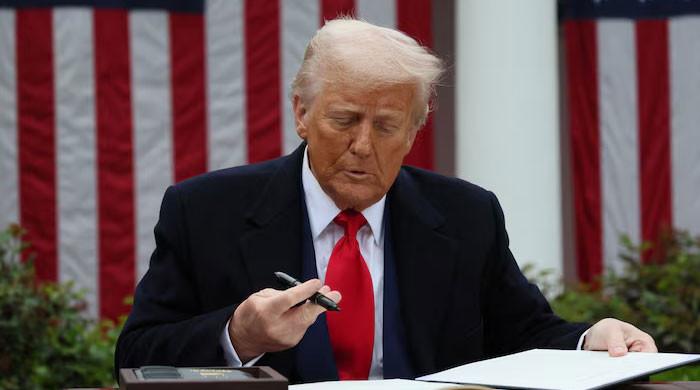China's nine million young graduates struggle despite economy crushed by virus pandemic
The world´s second-largest economy may have rebounded sharply from a historic virus-induced contraction
August 02, 2020

ZHENGZHOU: Biology student Ma Jingjing wandered the hall of a job fair in central China among other young Chinese hoping to find work in an economy crushed by the coronavirus pandemic.
Ma, 26, is one of almost nine million people graduating and entering the job market this year at a time of great uncertainty, an issue that has the ruling Communist Party worried to the point that President Xi Jinping has made it a priority.
The world´s second-largest economy may have rebounded sharply from a historic virus-induced contraction, but its young graduate jobless rate in June was more than three times that for urban unemployment.
Ma was among hundreds of young faces streaming in and out of the job fair on a recent weekend in Zhengzhou, where employers in industries ranging from real estate to manufacturing were recruiting.
Like many others, the aspiring teacher is "at a loss" and wondering if she should settle for any job or hold off work for further education.
"I have applied to seven or eight private schools, but only one has called me back for an interview," she told AFP at the fair.
"I've studied for so many years and don´t want my family to pay for further training," she said.
"I'm especially worried about my finances."
Aware of the risk that mass unemployment can spark political unrest — jeopardising the party´s pledge of prosperity in return for unquestioned political power — the government has been making efforts to boost graduate employment via state-owned enterprises (SOEs).
But poorer opportunities this year are pushing some into further studies, less ideal jobs or other options.
'Extremely anxious'
Although China´s economy appeared to make a strong comeback in the second quarter -- growing 3.2 percent on-year -- analysts caution the rebound may be overestimated, with a gap re-emerging between national figures and higher-frequency data.
Louis Kuijs of Oxford Economics told AFP there is no doubt China is recovering, but the magnitude would determine if growth is "strong enough to re-absorb some of the labour market problems" that emerged earlier this year, such as layoffs.
A gap in growth of a few percentage points could lead to a difference of millions of jobs created, he added.
Although China's urban unemployment rate slipped to 5.7 percent in June, 19.3% of new graduates remained jobless, UOB economists said in a report, adding the labour market "continued to face challenges".
Top-level economic data has not necessarily meant better hiring on the ground.
A 27-year-old surnamed Kang, who graduated in 2017, is back in the market after his contract in the communications industry in Beijing ended.
He decided to return to Zhengzhou, but has only received around five callbacks after sending more than 30 resumes to firms -- and is still looking for a job.
"The virus outbreak has limited travel and a lot of job fairs have been postponed or cancelled," he said. "I'm extremely anxious."











